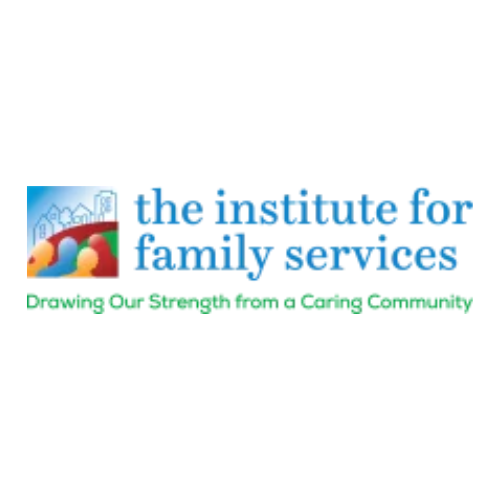Notifications

7 minutes, 0 seconds
-35 Views 0 Comments 0 Likes 0 Reviews

Promoting equity and justice in the workplace is more than a moral imperative—it’s essential for cultivating healthy, resilient, and high-performing organizations. While diversity, equity, and inclusion (DEI) initiatives are becoming more commonplace, many fail to create lasting impact because they stop at surface-level solutions. True transformation requires a deeper approach—one that challenges systemic bias, centers marginalized voices, and fosters cultural change from the inside out. This is where organizational training rooted in Liberation-Based Healing, like the programs offered by the Institute for Family Services (IFS), plays a crucial role.
Equity and justice go beyond equal opportunity. Equity ensures that all individuals have access to the tools, support, and accommodations they need to thrive—recognizing that not everyone starts from the same place. Justice, on the other hand, addresses and works to dismantle the systemic barriers and power dynamics that produce inequity in the first place. In a workplace context, this means reevaluating hiring practices, leadership structures, interpersonal communication, and institutional policies through a justice-centered lens.
However, meaningful equity and justice don’t happen by chance—they must be cultivated intentionally through education, awareness, and guided change. That’s where organizational training comes in.
Organizational training provides a structured opportunity for teams to pause, reflect, and grow. But not all training is created equal. Traditional DEI workshops often rely on static presentations or check-the-box compliance modules that fail to address underlying issues of power, privilege, and cultural identity.
In contrast, the Institute for Family Services offers dynamic, interactive organizational change training tailored to the specific needs of each group. Their process begins with a thorough organizational assessment that includes interviews with key stakeholders and participants. This diagnostic step helps uncover not just surface-level challenges, but also deeper cultural dynamics that may be hindering inclusivity and equity.
From there, IFS designs custom workshops or multi-part training series that actively engage participants in transformative dialogue and skill-building. These sessions explore the intersection of race, gender, class, sexual orientation, and gender identity—not as abstract concepts, but as lived experiences that shape how people interact and succeed in their work environments.
What sets IFS’s approach apart is its foundation in Liberation-Based Healing—a framework created by Dr. Rhea Almeida. This model draws on decolonial theory, critical pedagogy, and systemic family therapy to reimagine how healing, empowerment, and justice intersect.
Liberation-Based Healing challenges the notion that personal or interpersonal struggles exist in a vacuum. Instead, it understands issues such as workplace conflict, burnout, or exclusion as linked to broader systems of oppression. By centering marginalized voices and acknowledging historical context, the IFS model helps organizations move from blame and defensiveness to accountability and shared growth.
Organizations that undergo IFS-style training often report shifts in how they think, relate, and operate. Some of the measurable outcomes include:
Increased Cultural Awareness: Staff members become more conscious of how unconscious bias, stereotypes, and microaggressions show up in daily interactions.
Improved Communication: Teams develop shared language and frameworks for discussing sensitive topics like race, privilege, and power.
Stronger Relationships: Trust builds among colleagues, especially when marginalized staff feel seen, heard, and supported.
Leadership Transformation: Leaders are empowered to make policy changes and shift organizational culture in ways that promote justice.
Sustainable Change: Rather than one-off workshops, organizations receive tools and recommendations for long-term action.
IFS’s organizational training is designed to serve a wide range of audiences. Their faculty have worked with:
Youth-serving organizations and grassroots movements
Public and private school educators
Social workers and mental health practitioners
Nonprofit and community-based agencies
Administrators and leadership teams
No matter the setting, the goal remains the same: to create inclusive environments where everyone—regardless of identity—can thrive and contribute meaningfully.
While training is a critical entry point, equity and justice require ongoing commitment. Organizations must continue to invest in inclusive hiring, equitable evaluation practices, trauma-informed leadership, and diverse representation at all levels. IFS supports this by offering evaluations and actionable next steps after each training, helping organizations stay accountable and continue their journey.
Moreover, IFS faculty regularly present at national conferences and forums to keep expanding the conversation. Topics include "Creating Transformative Spaces for Equity," "Planting Seeds of Justice for Youth," and “Revolutionizing Mental Health Systems”—reflecting their deep commitment to systemic change beyond any single organization.
Promoting equity and justice in the workplace isn't about checking boxes—it’s about transforming culture. Through Liberation-Based organizational training, institutions can move beyond awareness to meaningful action, creating environments where all voices are valued, and all individuals have a fair opportunity to succeed. With thoughtful assessment, culturally grounded facilitation, and long-term support, organizations like the Institute for Family Services are paving the way for truly equitable and just professional spaces.

